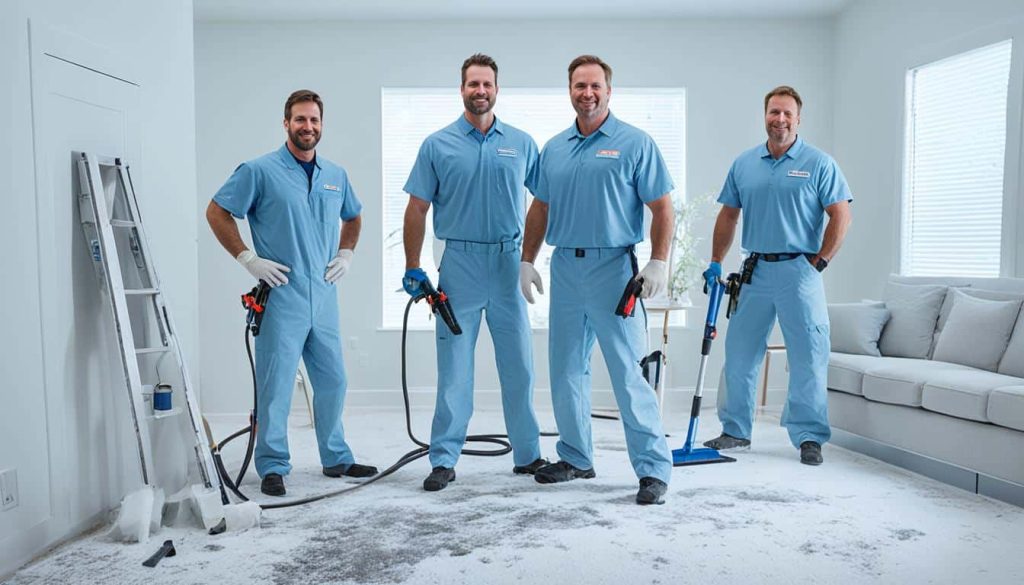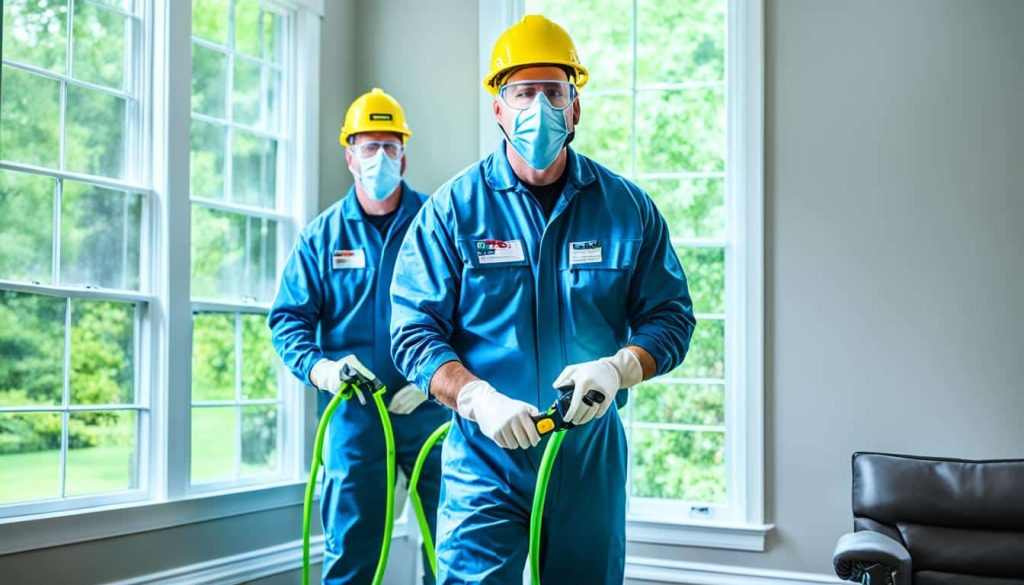In recent years, I’ve noticed an intriguing and concerning trend among tenants dealing with Tenants w/ mold fearful of losing their home mold issues in their rental properties. As a mold expert, I’ve had the opportunity to help countless individuals suffering from mold exposure, but many of these people face a difficult dilemma: they fear that speaking up about mold problems might lead to losing their home. This fear is particularly pronounced among tenants who feel grateful for their living conditions, despite the presence of potentially hazardous mold. The reluctance to “rock the boat” can often prevent them from addressing serious health risks in their living environment.
Array of Solutions, a trusted name in mold removal in Greenville South Carolina since 2007, stands ready to tackle your mold woes. With our expert mold inspection Greenville services and EPA-Registered credentials, we’re equipped to detect, remove, and prevent mold growth in your home or business
Table of Contents
Tenants w/ Mold Fearful Of Losing Their Home:
Tenants often hesitate to report mold problems to their landlords for several reasons. Many are worried that bringing up these issues might result in retaliation, such as eviction or rent increases. In some cases, tenants believe that their landlord is upstanding and would address the problem if informed. However, the reality is that landlords frequently balk at the suggestion that they are responsible for addressing air quality issues. This hesitance is often due to the potential cost and inconvenience of mold remediation.
Unfortunately, experience has shown that many landlords prefer to “get rid of the messenger” rather than address the underlying problem. This reaction can leave tenants in a precarious situation, especially if they are unable to secure alternative housing. One case I recently dealt with involved a single mother of three children. She worked as a hairdresser, and during one of my visits for a haircut, I noticed she was constantly sniffling and sneezing. Concerned, I offered to arrange a mold inspection of her rental property pro bono.

The test results revealed that her rental unit was dangerously contaminated with mold. When I presented the findings to her landlord, rather than addressing the issue, the landlord promptly offered to release her from her lease. This type of response is not uncommon. Many people rent their homes because they cannot qualify for a mortgage, which places them in a vulnerable position. The landlord, holding the upper hand, may choose to remove the tenant rather than invest in the necessary repairs to improve air quality.
For tenants, the situation is a catch-22. On one hand, they are living in a potentially hazardous environment; on the other, the cost of legal action to enforce their rights can be prohibitive. Additionally, moving is expensive and often not a viable option, especially for those already struggling financially. The fear of losing their home can prevent tenants from pursuing the necessary steps to address mold issues, ultimately exacerbating the problem.
If a tenant provides appropriate and documented evidence of a mold problem to their landlord, the landlord typically has two weeks to address the situation. However, the reality is that many tenants are deterred from pursuing their rights due to the potential costs and the fear of losing their home. This fear is not unfounded, as many landlords may choose to evict the tenant rather than deal with the hassle and expense of mold remediation.
The situation is further complicated by the fact that mold-related illnesses can be severe, causing symptoms such as respiratory distress, allergic reactions, and chronic sinusitis. For tenants already struggling with health issues, the added stress of potentially losing their home can be overwhelming. The financial burden of moving, combined with the fear of retaliation, leaves many tenants feeling trapped in an unsafe living situation.

As someone who has witnessed this struggle firsthand, I am deeply committed to helping tenants navigate these challenging circumstances. I offer a “pay as you can” program for those in need, which includes a detailed guide on how to document and address mold issues with their landlord. My goal is to empower tenants with the knowledge and resources they need to protect their health and their home.
In closing, it’s important to remember that no one should have to choose between their health and their home. Mold is a serious issue that can have long-term health consequences if not addressed promptly. If you or a loved one is facing a mold problem in a rental property, please don’t hesitate to reach out to me for a free consultation. Together, we can work to ensure that your living environment is safe and healthy.
